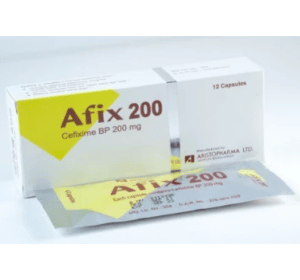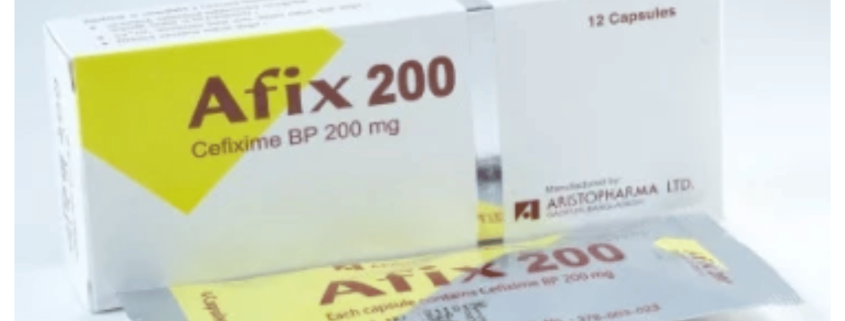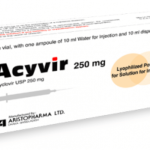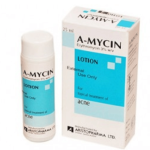Afix

Afix Cefixime
Indications
- Upper respiratory tract infections: Otitis media and other URTI where the causative organism is known or suspected to be resistant to other commonly used antibiotics.
- Lower respiratory tract infection: Bronchitis.
- Urinary tract infections: Cystitis, cystourethritis, pyelonephritis, gonococcal urethritis.
- Gonorrhoea (Uncomplicated).
- Typhoid fever.
Dosage & Administration
The usual course of treatment is 7 days. This may be continued for up to 14 days if required.
Afix® Tablet & Capsule:
Adult & Child over 10 years: 200-400 mg daily 1-2 divided doses.
Gonorrhoea: 400 mg as a single dose.
Afix® Powder for Suspension & DS Powder for Suspension:
Children above 6 months: 8 mg/kg daily in 1-2 divided doses or
6 months-1 year: 75 mg daily
1-4 years: 100 mg daily
5-10 years: 200 mg daily
Typhoid fever: 20 mg/kg body weight daily in 2 divided doses for 10 days
Drug interaction
Carbamazepine: Elevated carbamazepine levels have been reported.
Warfarin and Anticoagulants: Increased prothrombin time with or without clinical bleeding has been reported when cefixime is administered concomitantly.
Description
Afix® (Cefixime) is a broad spectrum 3rd generation cephalosporin antibiotic for oral administration. It is a bactericidal antibiotic and is stable to hydrolysis by many beta-lactamases. Cefixime kills bacteria by interfering the synthesis of the bacterial cell wall. It is highly active against Neisseria gonorrhoeae, Haemophilus influenzae, Moraxella catarrhalis including beta-lactamase producers, most of the Enterobacteriaceae, beta-haemolytic Streptococci (Group A & B) and Streptococcus pneumoniae. It is more active than other oral cephalosporins against Escherichia coli, Klebsiella spp, Proteus mirabilis and Serratia marcescens. It is also active against Streptococcus pyogenes. 40-50% of an oral dose is absorbed from gastro-intestinal tract, whether taken with meals or not. The plasma half-life is usually about 3 to 4 hours and may be prolonged when there is renal impairment. About 65% is bound to plasma protein. Cefixime is mainly excreted unchanged in bile and urine.



